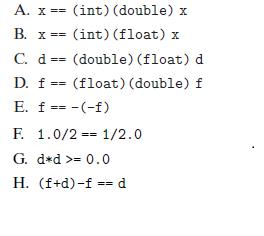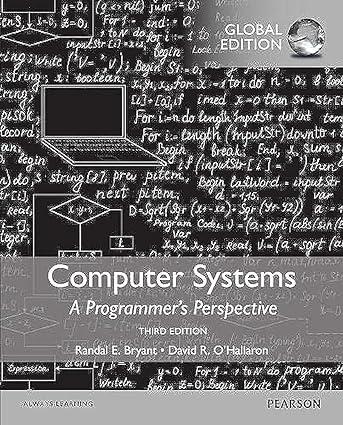Assume variables x, f, and d are of type int, float, and double, respectively. Their values are
Question:
Assume variables x, f, and d are of type int, float, and double, respectively. Their values are arbitrary, except that neither f nor d equals +∞, −∞, or NaN. For each of the following C expressions, either argue that it will always be true (i.e., evaluate to 1) or give a value for the variables such that it is not true (i.e., evaluates to 0).

Fantastic news! We've Found the answer you've been seeking!
Step by Step Answer:
Related Book For 

Computer Systems A Programmers Perspective
ISBN: 9781292101767
3rd Global Edition
Authors: Randal E. Bryant, David R. O'Hallaron
Question Posted:





